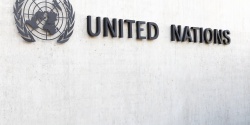Published: 29.07.2020

The ongoing pandemic of COVID – 19 prompted the World Health Organization (WHO) to extend the instructions from the interim guide, released on March 25. The updated version from June 1 contains several recommendations, referring to essential medical services, which, according to WHO, have been partly limited due to the pandemic. Among them, as one of the “sexual and reproductive health services”, the abortion to the full extent of law has been mentioned.
The United Nations Organization (UNO) continues its policy, involving promoting the “safe abortion”, including medical abortion. Using the pandemic as an excuse, WHO openly urges women planning abortion, to take at home abortifacients pills, which are now listed as the essential medication. Moreover, WHO urges countries to reduce some restrictions, which are responsible for the delay in abortion services and also in importing medicine, causing the miscarriage.
According to dr. Antonella Lavelanet, medical officer in the Maternal and Perinatal Health & Preventing Unsafe Abortion Team at the WHO, women have the right to abortion, regardless of the pandemic. Dr. Lavelanet emphasizes, that the lack of antibiotics or general anesthesia, as well as the lack of the medical staff, qualified to perform abortion, shouldn’t be treated as contraindications to the procedure. However, taking into account the current restrictions, WHO explicitly urges to develop telemedicine and self – management approaches, meaning, that abortifacients pills are recommended as a safe, noninvasive way of carrying out a do-it-yourself abortion. While suggesting, that medical abortion is an easier and more convenient method, than an abortion procedure, WHO does not reliably inform about the side effects of taking the abortifacients pills. As the statistics indicate – in the recent years, about 20 % of all adverse events, related to medical abortion, needed hospitalization, including blood transfusion, or due to the severe infections.
Some of the Europeans countries have already implemented recommendations from the interim guidance. However, according to WHO, abortion has been limited for the time of the pandemic, as it is still not considered a priority, which is why it should be declared as an essential procedure.

• Amendments to the directive on the rights of victims of crime are currently under consideration in the European Parliament.

The candidate supported last Sunday by all the Right for the second round of the Polish presidential election had promised that he would veto any law that liberalizes abortion. He won with 50.89% of the votes against the left-liberal candidate who had promised to ratify any law liberalizing abortion.

19.05.2025
• The 78th World Health Assembly, the deliberative body of the World Health Organization, begins today in Geneva.

12.05.2025
In a significant development for Poland’s conservative movement, the newly established Stańczyk Club in Warsaw hosted its first Coalition Meeting last Friday. This event marks the introduction of a model of center-right collaboration that has been influential in the United States since the early 1990s.